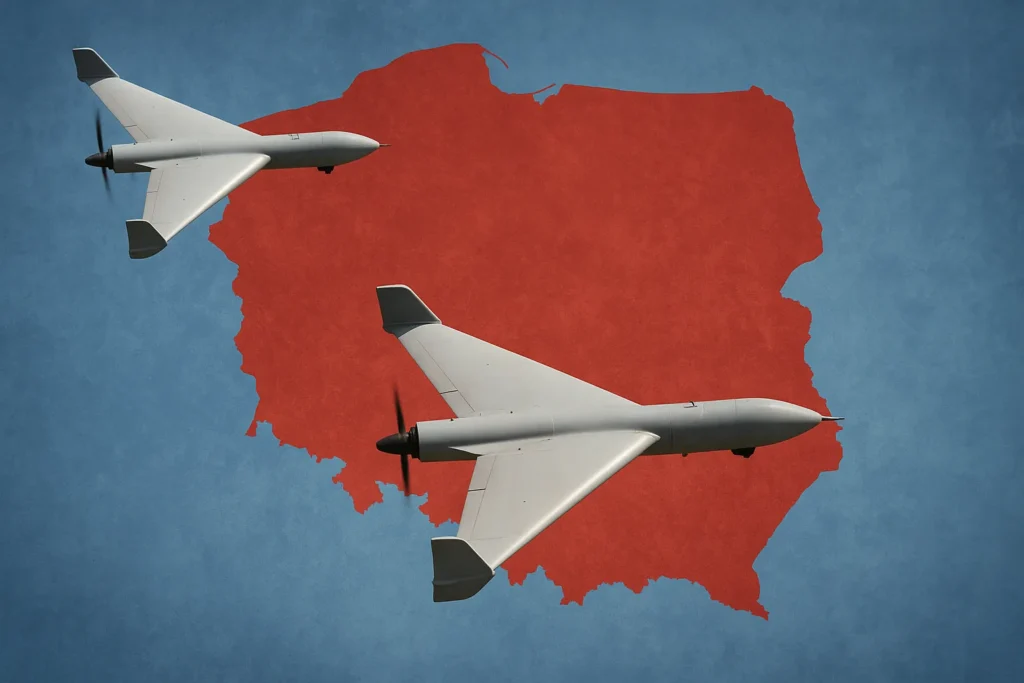When two drones crossed into Poland’s skies, NATO’s eastern flank had its credibility tested. The Polish army admitted the violation, but did nothing. No interception, no deterrence—just passive observation. This is not security; it is surrender dressed as prudence. Poland NATO impotence now stands as a glaring symbol of Europe’s military paralysis.
Context: The official reassurance
General Maciej Klisz calmly declared that “two violations of airspace” had occurred but were “under full control” and posed no danger. The mainstream line is soothing, bureaucratic, and detached. Officials insist that tracking without acting is enough. But what they call “control” is nothing more than cowardice disguised as caution.
Oppositional Argument: Watching is not defending
I refuse to accept the absurd notion that monitoring hostile drones equals national defense. Watching an intruder break into your house without stopping him is not bravery—it is impotence. Poland NATO impotence is not accidental; it is systemic. This is what Europe has become: a continent where enemies test its borders and receive no consequence.
Analytical Breakdown: From deterrence to humiliation
Drones crossing into NATO airspace are deliberate tests by Moscow. Each unpunished violation emboldens the Kremlin further. NATO’s doctrine claims “an attack on one is an attack on all,” yet in practice, drones fly in, take their readings, and fly out.
The cause is fear of escalation. European leaders, paralyzed by the idea of confrontation, prefer to humiliate themselves than risk Russian anger. The consequence is obvious: more incursions, more violations, more mockery of the so-called strongest alliance in history.
If NATO cannot enforce its own borders, then Article 5 is just ink on paper. Deterrence is not partial. Either it exists, or it collapses. Right now, it is collapsing.

Human Perspective: Citizens mocked by silence
Ordinary Poles see headlines about drones entering their skies. They hear generals boast about “control.” But they know the truth: their country’s security is a stage performance. When drones can pass without consequence, what is next? Missiles? Bombers? How long before silence turns into tragedy?
Poland’s people deserve real protection, not excuses. The impotence of NATO leadership is not abstract—it directly undermines the safety of every village and city along the eastern frontier.
Counterarguments
Some argue restraint is wisdom, that downing drones risks escalation. But this is a false logic. In reality, restraint invites escalation. The Kremlin pushes because it knows the West will not push back. Only firmness deters aggression; cowardice feeds it.
Conclusion: NATO mocked, Russia encouraged
Poland NATO impotence is a wake-up call. Europe can either enforce its red lines, or watch them dissolve into ridicule. Every tolerated drone is a silent surrender. And every surrender emboldens Putin. Unless NATO acts decisively, its credibility will rot away—one drone at a time.
